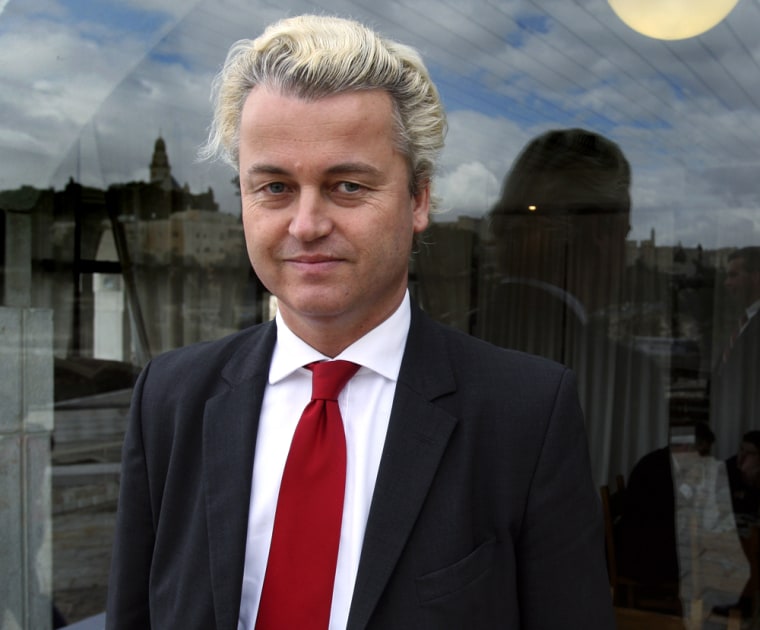Britain barred a far-right Dutch lawmaker from entering the country Thursday because of his anti-Islamic views, touching off a wide-ranging debate in the U.K. about the limits of free speech.
The British government has said that Geert Wilders was not welcome because he posed a threat to "community harmony and therefore public security."
Wilders was invited to Britain by a member of Parliament's upper house, the House of Lords, to show his 15-minute film "Fitna," which criticizes the Quran as a "fascist book."
The film sparked violent protests around the Muslim world last year for linking Quranic verses with footage of terrorist attacks.
A letter from the British Embassy in the Netherlands this week informed him he would not be allowed into the United Kingdom, but he criticized the travel ban as an attempt to stifle freedom of speech, and traveled to Britain anyway.
Wilders told The Associated Press he had no regrets about the trip, attacking what he called "the cowards in the U.K. government," and accusing British Prime Minister Gordon Brown of having a servile attitude toward Islam.
Wilders told the AP by telephone it was "a sad day for Britain and freedom of speech."
"You would expect something like this to happen in Zimbabwe or Jordan," he said.
'Extreme anti-Muslim hate'
British Foreign Secretary David Miliband told the BBC that Wilders was guilty of "extreme anti-Muslim hate."
He said Britain supported freedom of expression, but "there is no freedom to cry 'Fire' in a crowded theater; there is no freedom to stir up racial and religious hatred."
After Wilders left for the Netherlands, the Dutch Embassy in London issued a statement saying it "deeply regrets that the British authorities" denied him entry.
"The Netherlands believes that a Dutch MP (member of Parliament) should be able to travel freely throughout the EU," the statement said.
Wilders is being prosecuted in the Netherlands for hate speech after calling for a ban on Islam's holy book, the Quran.
The government's refusal to let Wilders into the country has sparked debate in Britain, with some commentators arguing that the ban had backfired.
"Banning Geert Wilders insults Muslims, diminishes freedom and cheapens Britain," Conservative European lawmaker Daniel Hannan wrote on The Daily Telegraph's Web site. "Being obnoxious is not a criminal offense."
Opinion in Britain's 2 million-strong Muslim community runs strongly against Wilders. Manzoor Mughal, the chairman of the U.K.'s Muslim Forum, told the British Broadcasting Corp. that Wilders was peddling hatred under the cloak of free speech.
"His film propagates hatred and poisonous lies, and therefore it should be banned," Mughal said.
One Muslim says he should be admitted
But the Quilliam Foundation, a U.K.-based Muslim think tank devoted to fighting extremism, said he should have been allowed into the country so that his views could be challenged "through debate and argument."
"Freedom of speech should be protected — so long as people do not use this freedom to call for violence against others," the foundation said in a statement.
Britain has previously barred controversial public figures from entering the country — although the policy's application has been viewed as uneven.
The government was criticized for granting a work permit to controversial Jamaican reggae singer Rodney Pryce (better known as Bounty Killer) which allowed him to perform in the U.K. in November. Gay rights campaigners were outraged, saying the singer's lyrics encouraged the murder of homosexuals.
Hard-line Egyptian cleric Yusuf al-Qaradawi was allowed into Britain in 2004 — when he was invited by London's mayor to speak at a conference — but his visit was widely criticized. When he asked to come to the country last year, reportedly for medical treatment, he was refused: The government said his views justified terrorism.
